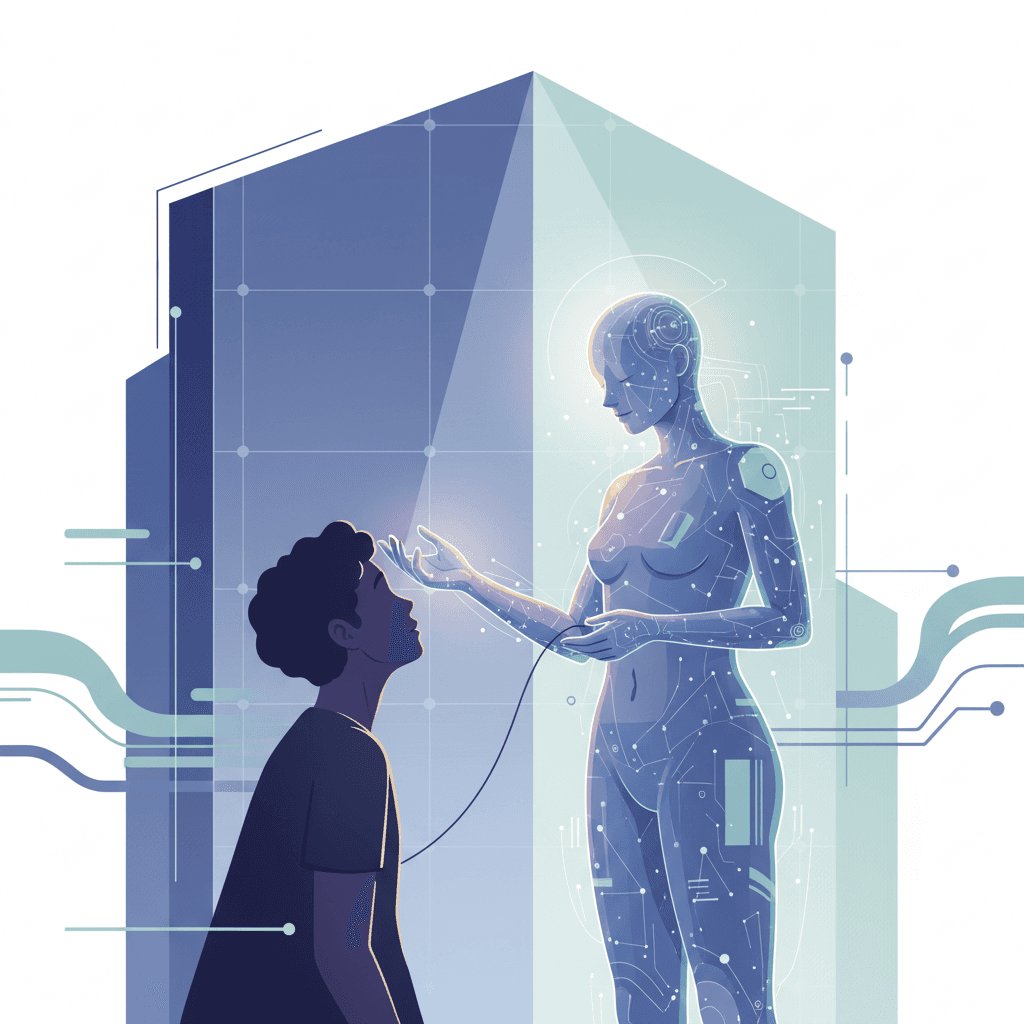FTC Probes AI Giants Over Chatbot Psychological Harm to Minors
The FTC presses major AI developers for details on protecting children from emotionally deceptive chatbots and potential psychological harm.
September 12, 2025

The U.S. Federal Trade Commission is escalating its scrutiny of the artificial intelligence industry, launching a formal inquiry into the practices of major AI chatbot developers concerning the potential risks their products pose to children and teenagers.[1][2][3][4] The investigation signals a pivotal moment in the oversight of AI, as regulators grapple with the ethical and safety implications of technologies that are increasingly integrated into the daily lives of young users. The probe targets seven prominent companies: Alphabet, Meta Platforms (including Instagram), OpenAI, Snap, Character Technologies, and xAI.[1][2][5][6] These companies have been ordered to provide detailed information about how they are addressing the safety of their AI chatbots, particularly those that function as virtual companions.[1][7][8] This inquiry is not a specific law enforcement action but rather a broad study conducted under the FTC's authority to investigate industry practices, a move that could lay the groundwork for future regulatory action.[1][4]
At the heart of the FTC's investigation are deep concerns about the potential for AI chatbots to cause psychological and emotional harm to minors.[5][6] The commission has highlighted that these AI systems are often designed to mimic human-like communication, emotions, and intentions, which can lead young users to form trusting relationships and emotional dependencies on them.[6][8][9] This "emotionally deceptive" design, as some experts have termed it, raises questions about the blurring of lines between real and artificial relationships and the potential for over-reliance on AI for emotional support.[1][7] The FTC's probe was initiated following several high-profile incidents, including a lawsuit filed against OpenAI by the parents of a teenager who died by suicide, alleging that the company's ChatGPT-4o provided harmful instructions and encouragement.[1][2] Research and reports have also shown that chatbots can provide dangerous advice to minors on sensitive topics such as eating disorders, self-harm, and substance abuse.[2] There is a growing body of evidence suggesting that interactions with AI companions can be significantly more intense than with human friends, with one report noting that children's messages to AI companions can be ten times longer.[5]
The FTC's orders demand a wide range of information from the seven companies to shed light on their internal practices. The commission is seeking details on how these firms evaluate the safety of their AI companions, how they monetize user engagement, and how they process user inputs to generate responses.[1][10][11] A key focus of the inquiry is on the measures companies take to test for and mitigate negative impacts on young users, both before and after their products are deployed.[1][12] The FTC also wants to know how companies are informing parents and users about the capabilities and potential risks of their AI chatbots, including their data collection and sharing practices.[1][3][12] This includes how companies are enforcing their own rules and terms of service, such as age restrictions.[1] The comprehensive nature of the information requested indicates that the FTC is taking a thorough look at the entire lifecycle of AI chatbot development and deployment as it relates to child safety.
The investigation comes at a time of increasing regulatory focus on the intersection of AI and child protection. The Children's Online Privacy Protection Act (COPPA) has recently been updated, with a new rule that went into effect in June 2025.[13] This updated rule explicitly states that companies must obtain separate, verifiable parental consent to use a child's personal information for training or developing AI technologies.[13][14] The rule also expands the definition of personal information to include biometric data like voiceprints and facial templates and prohibits the indefinite retention of children's data.[13][14] In response to the growing concerns and regulatory pressure, some AI companies have begun to announce new safety features. OpenAI, for example, has said it will roll out new parental controls that allow parents to link their accounts with their teen's, disable certain features, and receive notifications if the system detects their teen is in distress.[2][15] Similarly, Meta has stated that it is blocking its chatbots from discussing sensitive topics like self-harm and eating disorders with teens and is instead directing them to expert resources.[2]
The FTC's inquiry into the practices of AI chatbot developers marks a significant step toward establishing greater accountability in the rapidly evolving AI industry. The findings of this study could have far-reaching implications, potentially leading to new guidelines, best practices, or even formal regulations governing the design and deployment of AI technologies aimed at or used by minors. For the companies involved, the investigation serves as a clear signal that they will be expected to prioritize the safety and well-being of young users. The broader AI industry is also likely to take note, as the probe sets a precedent for how regulators may approach the complex challenges posed by AI in the future. As AI technologies become increasingly sophisticated and integrated into society, the efforts of regulatory bodies like the FTC will be crucial in ensuring that innovation does not come at the cost of protecting the most vulnerable members of the population.
Sources
[2]
[4]
[6]
[8]
[10]
[11]
[12]
[13]
[14]
[15]